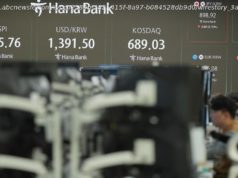Thai voters went to the polls on Sunday in a long-delayed election following a 2014 coup, in a race that pits a military junta chief seeking to retain power against a „democratic front“ led by the populist party he ousted.
BANGKOK (Reuters) – Thai voters went to the polls on Sunday in a long-delayed election following a 2014 coup, in a race that pits a military junta chief seeking to retain power against a “democratic front” led by the populist party he ousted.
Turnout was expected to be high among the 51.4 million Thais eligible to vote for the 500-seat House of Representatives, which will choose the next government along with a Senate that is appointed entirely by the ruling junta.
Thailand has been under direct military rule since then-army chief Prayuth Chan-ocha overthrew an elected government linked to exiled former Prime Minister Thaksin Shinawatra, who himself was thrown out by the army in 2006.
Critics have said a new, junta-written electoral system gives a built-in advantage to pro-military parties and appears designed to prevent the Thaksin-linked Pheu Thai party from returning to power.
Pro-Thaksin parties have won every election since 2001, but the past 15 years have seen crippling street protests that destabilized the government and hamstrung business.
Junta chief Prayuth’s party campaigned on maintaining order and upholding traditional values of loyalty and devotion to the monarch.
“I am happy to see citizens come out and exercise their voting rights,” Prayuth told reporters on Sunday after casting his vote. “I want to see love and unity. Everybody has one vote, one voice. Everybody wants democracy.” OUTCOME MAY TAKE WEEKS
The anti-Thaksin Yellow Shirts, mostly middle class and urban royalists who accuse his parties of corruption, have repeatedly taken to the streets, prompting the military to launch two coups in a decade.






